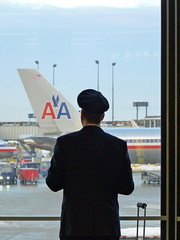So, you think your job is bad? Can’t take another day of your nine to five? You might feel a little better after learning about some of the most dangerous jobs in the world and how much they pay. Many jobs require daily risks to safety and sub-par working conditions. The size of the worker’s paychecks might surprise you too. The pay is low and many of these jobs don't even offer benefits like health insurance, term life insurance or a 401K. Crab fisherman and timber cutters, for example, are usually self-employed workers who must pay their own benefits if they want them.
 |
| Photo Credit |
Some things never change. Coal mining has been a dangerous and thankless job for decades. In 2004, there were 5,703 deaths in the United States alone. This routinely has increased every year. Miners work in unfavorable conditions with little or no air. There is constant risk of cave-ins and injuries caused by malfunctioning machinery. They usually make about $52,000 to $60,000 yearly.
 |
| Photo Credit |
With more fatalities per 100,000 workers than any other United States job, tower climbers are near the top of the list for rough jobs. Workers obviously have to conquer their fear of heights to climb up 1,700 feet each day to fix transmission lines, light bulbs on air traffic towers, or repair antennas. According to the Occupational Safety and Health Administration, Tower Climbers have one of the most dangerous jobs out there. How much does a tower climber make for his trouble? Surprisingly little. One worker makes about $60,000 working 60-hour weeks while the average worker is only in the $30,000 to $40,000 range.
 |
| Photo Credit |
It's no surprise that soldiers make the list for dangerous jobs. The most fatal jobs include explosive ordinance disposal, combat controllers and para-rescuers. Obviously, the numbers go up during times of war. Armed forces officers are paid based on rank and seniority. They can earn between $59,500 and $93,500 annually for serving their country.
 Crab Fisher
Crab FisherWhat could be so bad about fishing? Well, in Alaska crab fishers face sub-zero temperatures, powerful waves of freezing water and blistering arctic winds. The good news is the pay is very good. Experienced crab fishermen can make $30,000 to $40,000 with only a few months of work out of the entire year. In the past, an experienced boat captain could make $150,000 in a season. Not bad compensation considering there are fatalities every year.
 |
| Photo Credit |
While it is not the leader in fatalities, the timber cutter industry has 118 accidents per 100,000 workers annually. Obviously working with dangerous power tools at dizzying heights is a contributing factor. Massive toppling trees also cause a few deaths every year. The average United States timber cutter salary is about $40,000 to $60,000 for 10 months of work.
 Airline Pilot
Airline PilotAlthough we mostly only hear about large commercial plane crashes, there are over 70 deaths per 100,000 workers among bush pilots, air-taxi operators and small commercial flyers. Pilots in Alaska have the highest fatality rate. They face long flights, unpredictable weather, and less-than-ideal landing conditions. Pilots can make anywhere between $50,000 and $160,000 depending on experience and industry. Military pilots make between $21,000 and $99,000.
Maybe your own job doesn’t sound so bad after reading this. We take for granted many of the simple things that these brave workers provide us on a daily basis. So, hats off to all those working hard! We hope you have a safe day on the job!

























































Wow...there is NO way I could be a tower climber above all. The thought makes me nervous, lol
ReplyDeleteAll jobs have their pros and cons, especially on the safety department. But these jobs definitely take the cake when it comes to dealing with danger. Whether you are a coal miner working underground, or a pilot flying in harsh weather conditions, people employed in these jobs must secure their safety and future all the time. Having a good insurance policy and a qualified legal professional that will help you in the event of unfortunate circumstances can be a first step in protecting yourself.
ReplyDelete